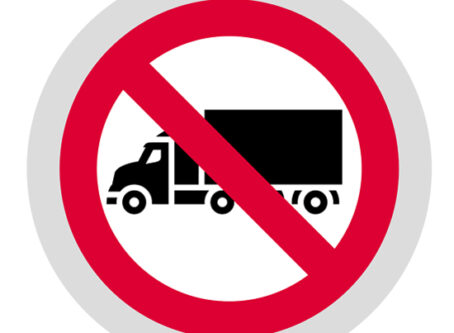Virginia governor vetoes winter weather restrictions on trucks
Virginia Gov. Glenn Youngkin acted on Monday, April 11, to veto a bill to place limitations on truck travel during winter storms.
The bill, SB706, was introduced early this year following a January winter storm that resulted in jammed traffic that left some travelers on Interstate 95 in Virginia stranded for more than 24 hours.
Senate Transportation Committee Chairman Dave Marsden, D-Fairfax, said a crash involving multiple large trucks played a role in the backup along a 50-mile stretch of I-95 outside Washington, D.C. As a result, Marsden pursued a plan to keep trucks to the right when the weather turns bad.
The Senate-approved version called for truck drivers traveling “in certain weather conditions” to stay to the right on any highway with two or more lanes in each direction. The rule would apply to trucks with a gross weight rating in excess of 26,000 pounds.
A revision made in the Senate Transportation Committee specified that trucks must abide by the rule “if reasonably possible and conditions safely permit” to drive in the right-most lane of affected highways.
Additionally, truck drivers would be forbidden from using cruise control or compression engine brakes when driving in snow, sleet, or freezing rain, or other inclement cold precipitation.
Another change prohibited police from stopping trucks during winter weather to enforce the proposed rule covering use of engine brakes or cruise control.
One more revision in the House removed the lane restriction language. All that remained in the bill sent to the governor were provisions addressing use of cruise control or compression engine brakes.
Burdens for trucking industry
Explaining his veto, Youngkin wrote that the bill “is intended to prevent a traffic crisis such as the one that occurred on Interstate 95 on Jan. 3, 2022, where semi-trailer trucks were immobilized by icy conditions, which prevented first responders from rescuing stranded motorists.
“However, the provisions of this bill would not prevent a similar incident from occurring. According to a report sponsored by the Virginia Department of Emergency Management, the Virginia Department of Transportation, and the Virginia State Police, neither cruise control nor compression release brakes were found to have contributed to the traffic crisis.
“Additionally, this bill excludes enforcement mechanisms to support its provisions, except for a secondary offense only provable by after-incident data. Consequently, this bill would impose burdens on Virginia’s trucking industry, as well as interstate transportation, without any demonstrable public safety or transportation benefit. More broadly, the Code of Virginia should not be littered with traffic provisions that law enforcement is not authorized to enforce.” LL
More Land Line coverage of news from Virginia.









